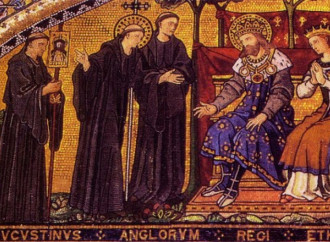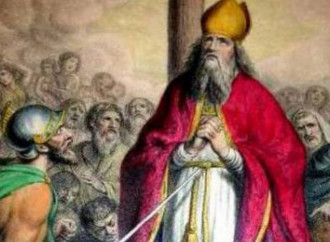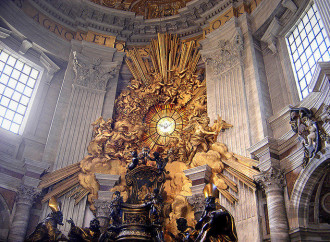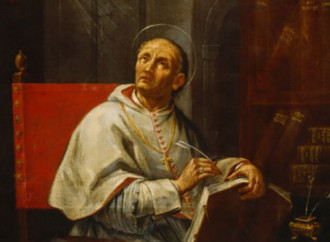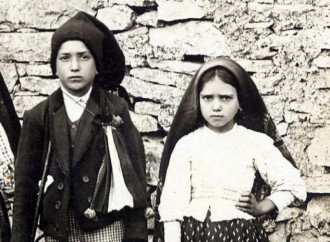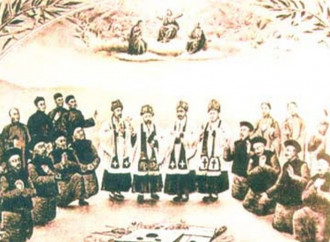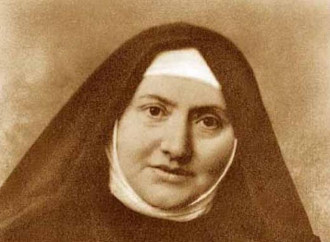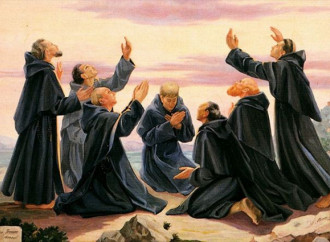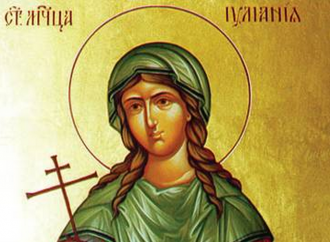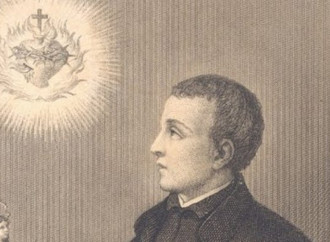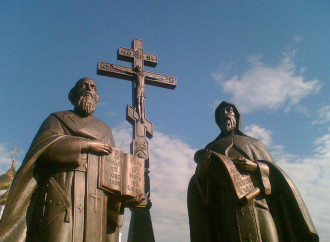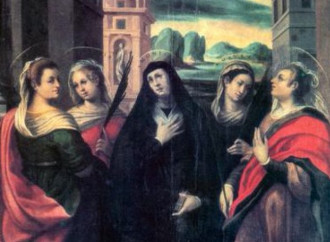Saint Æthelbert
The life of Saint Æthelbert (ca. 560-616) King of Kent, raised as a pagan and first English sovereign to convert to Christianity, came to a turning point when he married Bertha, a devout Christian woman, daughter of the Merovingian king Charibert.
Saint Polycarp
Saint Polycarp (ca. 69-155), one of the Church Fathers, had the grace of being a direct witness of the charisms of the apostles; he was a disciple of Saint John the Evangelist, who consecrated him Bishop of Smyrna.
Chair of Saint Peter
"'Who do you say I am?' Simon Peter replied: 'You are the Christ, the Son of the living God'". Jesus' question to the disciples and the answer of his vicar on earth recall the reason for the liturgical feast of the Chair of Saint Peter, which is based precisely on the mission of shepherd of the universal Church entrusted by Our Lord to the Prince of the Apostles.
Saint Peter Damian
The life of this great monk, theologian and bishop, a protagonist of the 11th century who significantly contributed to the renewal of the Church, enjoying the trust of the various popes who employed him as a collaborator, did not have an easy beginning. Saint Peter Damian (1007-1072), the last of six children and a native of Ravenna, soon lost both parents and lived his childhood in hardship.
Saints Jacinta and Francisco Marto
"If I could only put into the hearts of all, the fire that is burning in my own breast, and that makes me love the Hearts of Jesus and Mary so very much!" So said Jacinta Marto, the little warrior who went up to Heaven on February 20th, 1920 at almost ten years old, thus joining her brother Francisco, who had died on April 4th, 1919, when he was not yet eleven.
Saint Lucy Yi Zhenmei
This exemplary Chinese catechist, who suffered martyrdom at the age of 47, had demonstrated virtuousness from childhood. Saint Lucy Yi Zhenmei (1815-1862), the last of five children, was born in Mianyang to a family that had recently become Christian through the father‘s conversion, previously a Buddhist.
Saint Geltrude Comensoli
The Eucharist was "Heaven on earth" to Saint Geltrude Comensoli (1847-1903), founder of the Institute of the Sacramentine Sisters which was consecrated to the perpetual adoration of the Blessed Sacrament and born from her love for Christ.
Saint Juliana
She came from Nicomedia, the capital of the Eastern Roman empire under Diocletian
Saint Claude de la Colombière
"I will send you a faithful servant of mine and perfect friend," Jesus had promised Margaret Mary Alacoque, then going through a difficult time because the authenticity of her visions of the Sacred Heart was not believed. That God-sent friend was Claude de la Colombière (1641-1682), superior of the Jesuit house in Paray-le-Monial from 1675.
Saints Cyril and Methodius
On the same day as Saint Valentine, bishop of Terni, martyred in Rome, the Church celebrates the feast of the brothers Cyril and Methodius, evangelisers of the Slavic peoples and proclaimed patrons of Europe by John Paul II with the apostolic letter Egregiae Virtutis (31st December 1980).
Saints Fusca and Maura, martyrs
According to the most renowned Passio, Fusca was born into a pagan family of Ravenna. When she was about 15, she became interested in the Christian faith. She confided her desire to learn more about Christianity to Maura, her affectionate nurse, who encouraged her.
